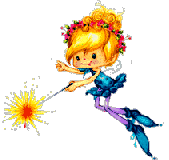
Angela Carter
"Angela Olive Stalker was born in Eastbourne, Sussex, England on the 8th May 1940. War had broken out in Europe and she was evacuated as a child to Yorkshire to live with her maternal grandmother, a working-class, matriarchal, domineering, feminist bread-'n-buta granny of the north of England. It's not surprising that Carter's first years were later to have so much of an influence on her writing and philosophy. We can almost imagine that maternal grandmother sitting by the fire, with a woolen shawl wrapped round her telling Carter stories and tales by the warmth of the burning coal. We can almost imagine Carter remembering those times gone by as she wrote The Bloody Chamber collection of feminist fairytales in the late 1970's, in which she took on the role of Old Mother Goose to bring back to life the tales of Bluebeard, Little Red Riding Hood, and Alice in Wonderland - not forgetting the transformation of the Erl-King in the forest (which she based on the poem by Goethe and the opera by Schubert)�
"Her mother was a great literary influence on her, as she devoured book after book and author after author. Her upbringing was very much based on the works of Shakespeare and great names of English literature. The influence of authors on her work is enormous and perhaps incalculable. There are references to Chaucer, Shakespeare, Lawrence, Wordsworth, Blake, Coleridge, Mansfield, Woolf, Dickens, Keats, Stoker, Carroll and on and on the list will go on...she was not just confined to English literature either. She spoke French and German and was interested in the philosophy of De Sade and Bataille regarding sexuality, Irigaray and De Beauvoir for feminist theory, and Genette and Barthes for ideas concerning intertextuality and analysis of texts. She was also greatly influenced by her short two-year stay in Japan, after having won the Somerset Maugham prize for Literature - she always said that Maugham would have been pleased to know that she used the five hundred pounds - which apparently went further back then - to run away from her husband and British culture. She ended up working in a bar in Tokyo and writing in her free time. She learnt what it was like to be a woman in society; she was able to analyze British cultural and societal structuring and criticize it for all it was worth. She finished by travelling all over the world visiting the States, Asia and then back to Europe to try and sort out all the imagery that she said she had come into contact with over the years of travelling� Angela Carter died on the 16th of February 1992 at the age of 51 from cancer.
"Margaret Atwood said of her in the obituary published in The Observer Newspaper one week later:
She was the opposite of parochial. Nothing, for her, was outside the pale: she wanted to knowabout everything and everyone, and every place and every word. She relished life and language hugely, and revelled in the diverse." (Perso.wanadoo)
Angela Carter incorporated her life experiences, as mentioned above, in her interpretations of traditional European fairy tales. In her story The Company of Wolves, Carter emphasized the sexual connotations that were alluded to in the Grimm and Perrault versions of Little Red Cap and Little Red Riding Hood. She also included her feminist ideologies in her empowerment of the young female protagonist. Carter's rendition of the "original" stories provides a modern perspective to well known classics.
To learn more about Angela Carter visit:
http://perso.wanadoo.fr/andrew.milne/biography.htm
Compare her to other authors: